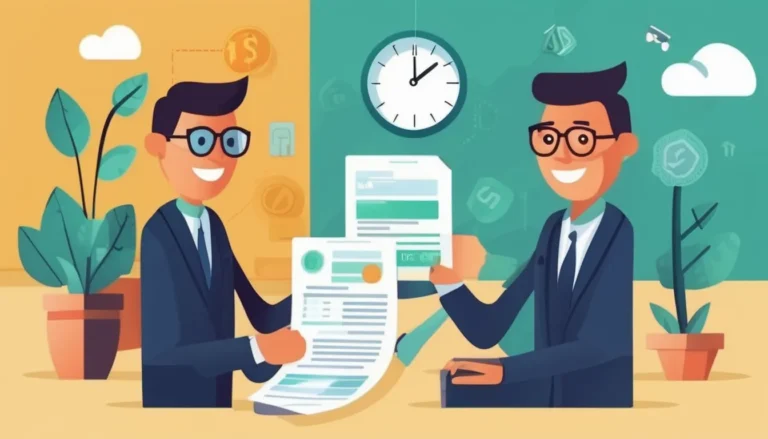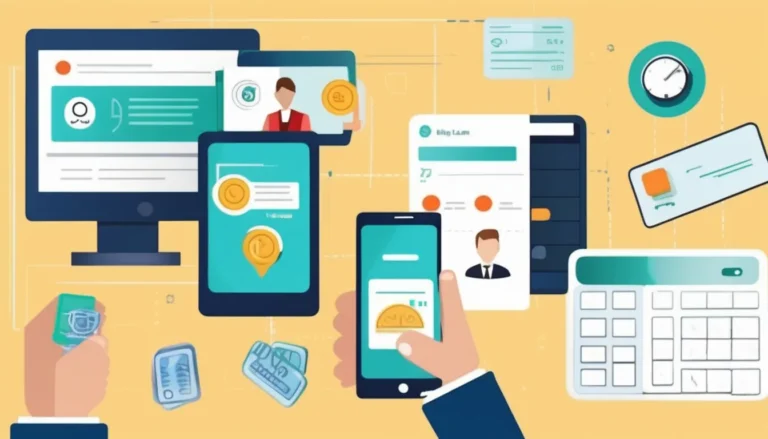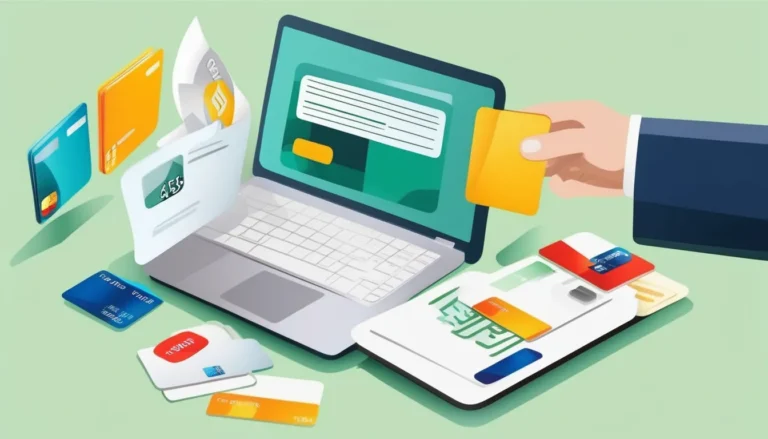Debt Consolidation in 2025: Is a Personal Loan the Right Solution?

In 2025, debt consolidation remains an appealing option for those struggling with multiple debts. Whether it’s credit card balances, medical bills, or personal loans, juggling various obligations can be overwhelming. As interest rates rise, finding ways to simplify and manage debt becomes even more important. One strategy that continues to gain attention is debt consolidation through a personal loan. But is it the right solution for you? This article explores debt consolidation, the role of personal loans, and factors to consider when deciding if a personal loan is the best choice for your situation.
What is Debt Consolidation?
Debt consolidation refers to the process of combining multiple debts into a single loan or payment plan. The goal is to simplify debt management by reducing the number of creditors and making monthly payments more manageable. Debt consolidation can be achieved through various methods, including balance transfer credit cards, home equity loans, or personal loans.
The primary benefit of consolidating your debts is the potential to lower your interest rates and monthly payments. This can make it easier to pay off your debt faster and reduce the overall cost of borrowing. It can also help to improve your credit score if you’re able to keep up with the new, consolidated loan payments.
Why Consider Debt Consolidation?
There are several reasons why individuals opt for debt consolidation. The most common include:
- Simplifying Finances: Managing multiple payments across different lenders can be cumbersome. With debt consolidation, you can combine your debts into one payment, making it easier to stay on top of your finances.
- Lower Interest Rates: If you have high-interest debt, like credit card balances, consolidating it into a personal loan with a lower interest rate can save you money over time.
- Faster Debt Repayment: With a single monthly payment and a lower interest rate, you may be able to pay off your debt more quickly, ultimately saving on interest charges.
- Improved Credit Score: Consolidating your debts into one payment and reducing outstanding credit balances can improve your credit score. However, this depends on your ability to keep up with the loan payments.
Understanding Personal Loans for Debt Consolidation
A personal loan is one of the most popular options for consolidating debt. These loans are unsecured, meaning you don’t need to put up any collateral like your home or car. Instead, the lender evaluates your creditworthiness, income, and other financial factors to determine if you qualify.
Personal loans come with fixed interest rates and terms, which means you’ll have a clear repayment schedule. This can provide borrowers with predictability, helping to plan monthly expenses and reducing the chance of missed or late payments.
Here’s how a personal loan for debt consolidation typically works:
- You Apply for the Loan: You apply for a personal loan with a lender. The loan amount will be the total of your existing debt, such as credit card balances, medical bills, or other personal loans.
- Loan Approval and Disbursement: If you’re approved, the lender will disburse the loan amount to you in one lump sum. The loan amount will be used to pay off your existing debts.
- Repayment Terms: You’ll start repaying the loan according to the agreed-upon term, typically over 2 to 5 years. Your interest rate will be fixed, which helps you predict monthly payments.
- Debt-Free After Term Completion: After you’ve repaid the loan in full, your debt is considered consolidated, and you will only have one remaining loan balance to manage.
The Pros of Using a Personal Loan for Debt Consolidation
- Lower Interest Rates: Personal loans often come with lower interest rates than credit cards or payday loans. If you’re consolidating high-interest debt, a personal loan can potentially save you a significant amount of money over time.
- Fixed Payments: Unlike credit cards, which have variable interest rates and fluctuating minimum payments, personal loans have fixed payments and interest rates. This can help you budget more effectively and avoid unexpected increases in monthly payments.
- Unsecured Loan: Since personal loans are unsecured, you don’t need to risk your home or assets. This makes it an attractive option for individuals who don’t have enough equity in their home or don’t want to risk their property.
- Credit Score Improvement: Consolidating your debts into one loan can improve your credit score, especially if you have outstanding credit card balances. Reducing your credit utilization ratio (the amount of credit you’re using compared to your total available credit) is a key factor in improving your credit score.
- One Monthly Payment: A personal loan for debt consolidation simplifies your payments. Instead of managing multiple creditors and varying due dates, you’ll have one set payment to keep track of.
The Cons of Using a Personal Loan for Debt Consolidation
While a personal loan may be an effective debt consolidation solution for many, it’s not without potential downsides.
- Qualification Requirements: Personal loans are typically only available to individuals with a good credit score. If your credit is poor, you may not qualify for a loan with favorable terms. You may still be approved for a personal loan, but the interest rate could be higher, reducing the financial benefits of consolidation.
- Fees and Charges: Some personal loans may come with origination fees or early repayment penalties. These additional costs can reduce the overall savings of consolidating debt. It’s important to review the terms and conditions of the loan carefully to avoid surprises.
- Increased Debt: If you’re not careful, consolidating debt can lead to even higher debt. Some borrowers may be tempted to run up their credit cards again after consolidating debt into a personal loan, which can result in more debt than before.
- Risk of Default: Missing a payment on your personal loan can result in serious consequences, including late fees, a damaged credit score, or even defaulting on the loan. This can make it harder to borrow money in the future.
- Shorter Repayment Terms: While personal loans often offer better terms than credit cards, they also typically come with shorter repayment periods. This could mean higher monthly payments than what you’re currently paying, especially if your previous debt was spread out over a longer period.
Is a Personal Loan the Right Solution for You?
Deciding if a personal loan for debt consolidation is the right solution depends on your individual financial situation. Here are some factors to consider:
- Your Credit Score: If you have a strong credit score (typically 690 or above), you’re more likely to qualify for a personal loan with a low interest rate, making consolidation a good option. However, if your credit score is low, you may struggle to find favorable terms.
- Debt Amount and Types: Personal loans are most effective for consolidating high-interest unsecured debt like credit cards. If your debt includes secured loans (like a mortgage or car loan), you may need to explore other options, such as refinancing or home equity loans.
- Your Repayment Ability: Consider whether you can afford the new monthly payments. While consolidating debt into a personal loan can lower your interest rate, it could increase your monthly payments if the loan term is shorter than your previous payments.
- Discipline with Credit: If you’re prone to racking up more debt on your credit cards after consolidation, a personal loan may not be the best choice. It’s important to have a solid plan to avoid falling back into debt.
- Alternatives: Before committing to a personal loan, consider other debt consolidation options, such as balance transfer credit cards or debt management plans. Each option has its pros and cons, depending on your circumstances.
Conclusion
In 2025, a personal loan remains one of the most popular tools for debt consolidation in the U.S. It offers a way to simplify finances, lower interest rates, and potentially improve credit scores. However, it’s not a one-size-fits-all solution. Personal loans work best for those with strong credit scores, a manageable amount of high-interest unsecured debt, and the discipline to avoid racking up new debt.
Before deciding if a personal loan is the right debt consolidation solution for you, carefully assess your financial situation, shop around for the best loan terms, and ensure you’re committed to sticking to a budget that will allow you to pay off the loan within the agreed-upon time frame. If used wisely, a personal loan can be a powerful tool to regain control over your finances and work toward a debt-free future.




